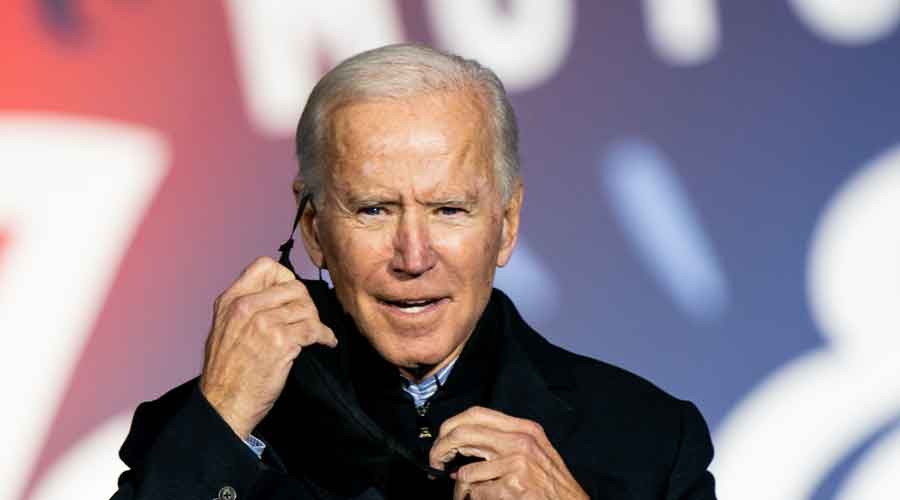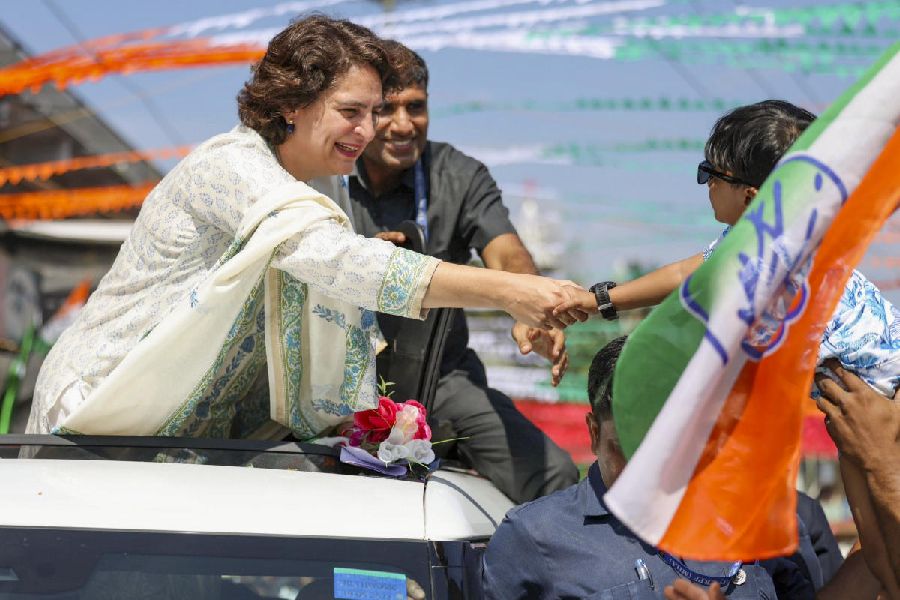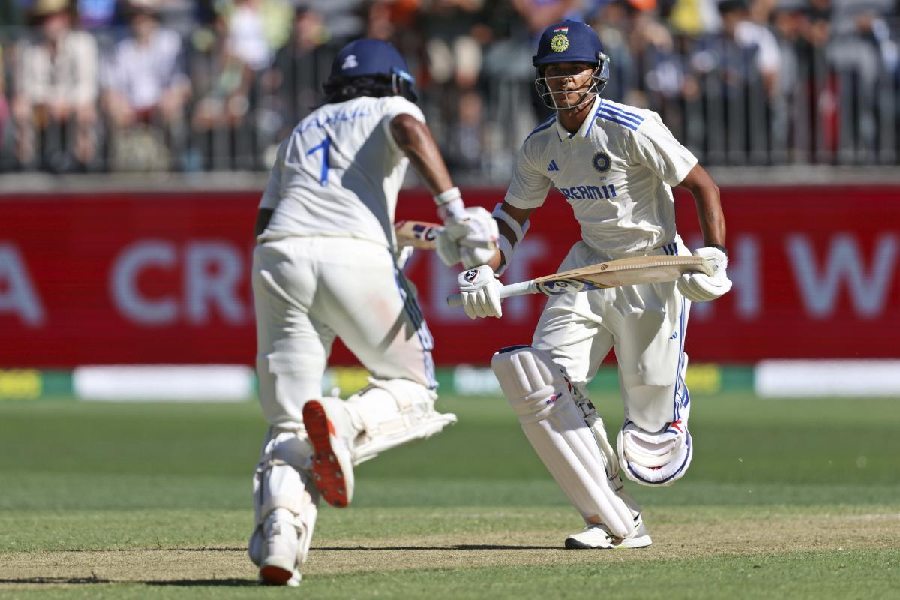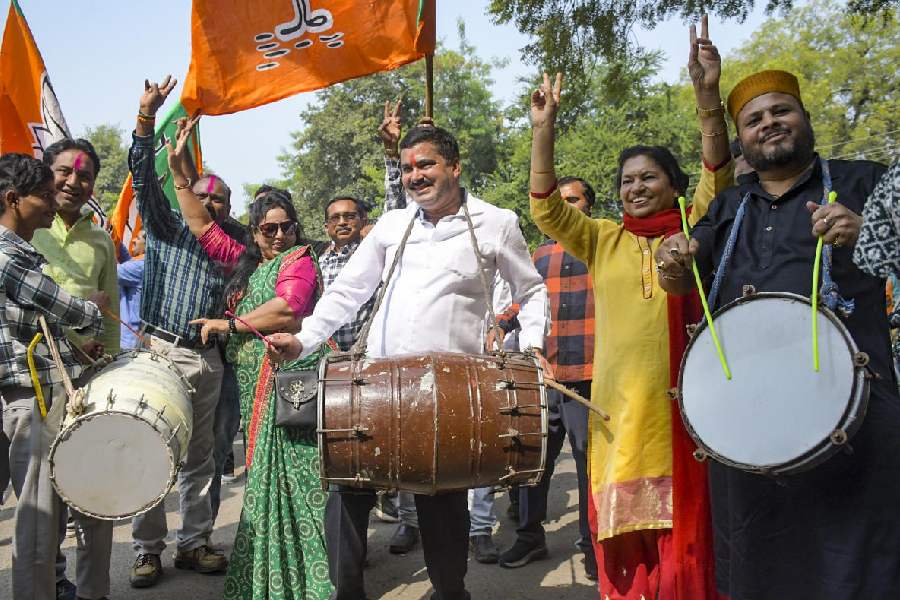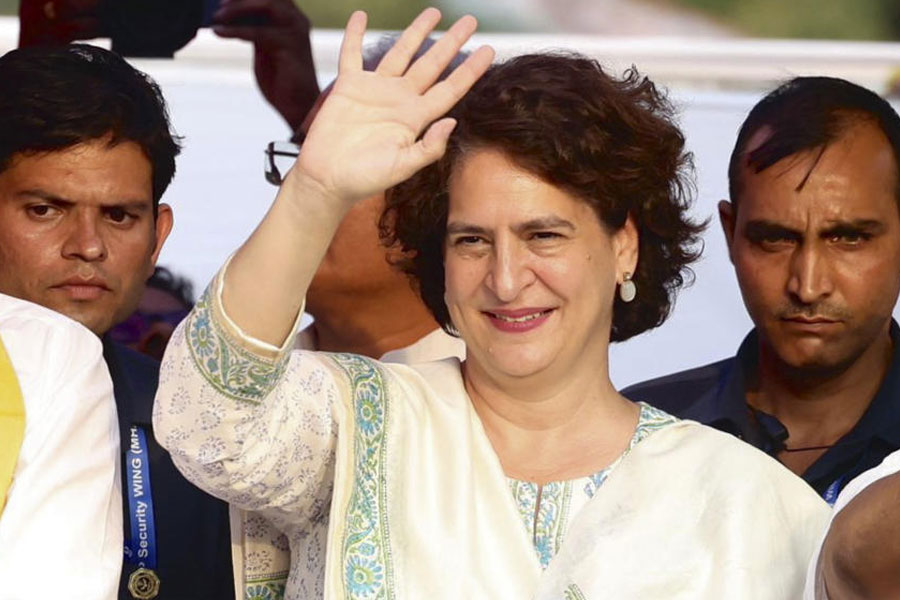Georgia might be turning purple, fuelled by fast-changing suburbs. Arizona, reeling from the coronavirus and trending Democratic, was a tantalizing target as well.
But from the start of his presidential campaign until the final day of the race, the “scrappy kid from Scranton” maintained his bet that winning the White House would come down to rebuilding the Democrats’ once-solid “blue wall” in those three states that crumbled in 2016.
And now, with Biden and President Donald Trump locked in a nail-biter of an election, the ultimate path to 270 Electoral College votes for either man will wind through Michigan, Pennsylvania and Wisconsin.
“If I’m going to beat Donald Trump in 2020, it’s going to happen here,” Biden, the former vice president, told voters in Pittsburgh during the first address of his primary campaign in April 2019.
After midnight Wednesday, he declared to supporters, “It’s going to take time to count the votes, but we’re going to win Pennsylvania.” By the time Biden addressed his car-honking supporters Wednesday morning, the numbers had shifted. He has the edge in Arizona and remains competitive in Georgia. But even if he wins both of those states, he would still need to prevail in at least one of the blue-wall states.
Trump campaigned aggressively in Michigan, Wisconsin and especially Pennsylvania too. But Biden’s focus was notable: Many presidential nominees take their eyes off their most critical states, but Biden never lost sight of his goal to try to win back voters in those three states who abandoned the party four years ago.
Such discipline is relatively rare in presidential politics — candidates, often times Democrats, usually get swept up with a big map conquest, like Hillary Clinton’s intense focus on Florida in 2016 and even her dalliances with Arizona and Utah.
But this race was no ordinary contest: Like voters, activists and officials in his party, Biden was haunted by the narrow loss in 2016 of 80,000 votes in Pennsylvania, Wisconsin and Michigan — the three traditionally Democratic states that cost the party the White House that year.
In the last days of the election, Biden’s campaign and allies privately maintained that he could win battleground states across the country, including places like North Carolina, Arizona and Georgia. But, they argued, the trifecta represented their easiest — although perhaps not fastest — path to the presidency. Final returns in all three states are expected to take days, and Trump tried early Wednesday to set the narrative that Democrats were trying to “steal the election” — a groundless assertion.
But the Biden camp wasn’t about to take the bait.
“We believe that we are well-positioned in Pennsylvania, Michigan and Wisconsin,” Jen O’Malley Dillon, Biden’s campaign manager, said Monday in a briefing about election night. “We know those states in particular are coming in later, but we think we’re going to win those states. That is our clearest path to victory.”
Although Biden visited Arizona and Georgia, his campaign had declined to spend a lot of precious time and money in those states — despite repeated pleas from local Democrats. And when two Democratic billionaires, Dustin Moskovitz and Mike Bloomberg, poured money into Texas in the eleventh hour, Biden dispatched only Sen. Kamala Harris of California, his running mate, to the state.
Even that was more attention than Democrats were accustomed to getting from the national party in the traditionally conservative Western states. In Arizona, a state that Biden visited just once as the party’s nominee, officials said they were satisfied with the campaign’s approach to the state.
“They spent a lot of time here; they put in a lot of energy and attention, more than previous campaigns,” said Rep. Ruben Gallego, who represents the fast-growing Phoenix area. “And if we win, it doesn’t matter.”
In total, Biden spent $57.8 million on advertising in Texas and Arizona. He spent nearly three times as much — $169.2 million — in Michigan, Pennsylvania and Wisconsin.
The decision to focus on the industrial trio was driven by the practicalities of political math. Clinton lost those states by tight margins, making them fertile ground for Democrats to begin a comeback. Just winning those three states, along with holding all of the traditionally Democratic strongholds won by Clinton, would capture the presidency for Biden.
But it was also a calculation born of cultural affinity. Despite his decades in Washington, Biden sees himself as a working-class son, just another “middle class Joe” taking the train to work like any other commuter.
“Joe, people like him; they don’t dislike him,” Rep. Debbie Dingell of Michigan said in an interview this fall. “Hillary Clinton’s my friend, but she never walked into a union hall.”
Shortly after Clinton’s loss in 2016, Biden recalled feeling disturbed when seeing Trump strike a chord with voters at a rally near his childhood Scranton home, in Wilkes-Barre, Pennsylvania. “Son of a gun — we may lose this election,” Biden recounted feeling, in an interview in December 2016 with the Los Angeles Times.
Some Democrats say it was Biden’s willingness to focus on the northern states, devoting his limited in-person campaign stops to show up even as coronavirus cases surged across the region, that gave him a chance of winning the states back.
“A lot of the problem was that Hillary Clinton was not here enough in some of the suburban areas that we lost to Trump,” said Jay Costa, the Democratic leader in the Pennsylvania state Senate. “The former vice president did a very good job of not falling into that trap another time.”
The Biden campaign, unlike the campaigns of Obama and Clinton, did not impose a central strategy on state Democratic parties, said officials in the three states. Instead, the campaign integrated with voter outreach programs that each state had been building since their losses in 2016.
“The big gamble for state parties was, would the presidential campaign push all the dishes off the table and start over or integrate with what we had been building?” said Ben Wikler, the chairman of the Democratic Party of Wisconsin. “They didn’t impose a one-size-fits-all model.”
Wikler said he had been in regular contact with Biden campaign officials beginning last summer to brief them on the program that the state party was building.
After Clinton failed to visit Wisconsin during her 2016 campaign, Biden made three visits to the state, which was set to host the Democratic National Convention before it became an all-virtual event because of the coronavirus pandemic, which is worse in Wisconsin than it is in any other battleground state.
Wikler said the three visits, along with myriad other virtual events that Biden and his surrogates hosted for local supporters, were sufficient enough to maintain a presence for Wisconsin voters.
“Biden has made clear all along that Wisconsin is a top priority,” he said.
It may still be some time before the nation knows whether it was enough.
New York Times News Service

